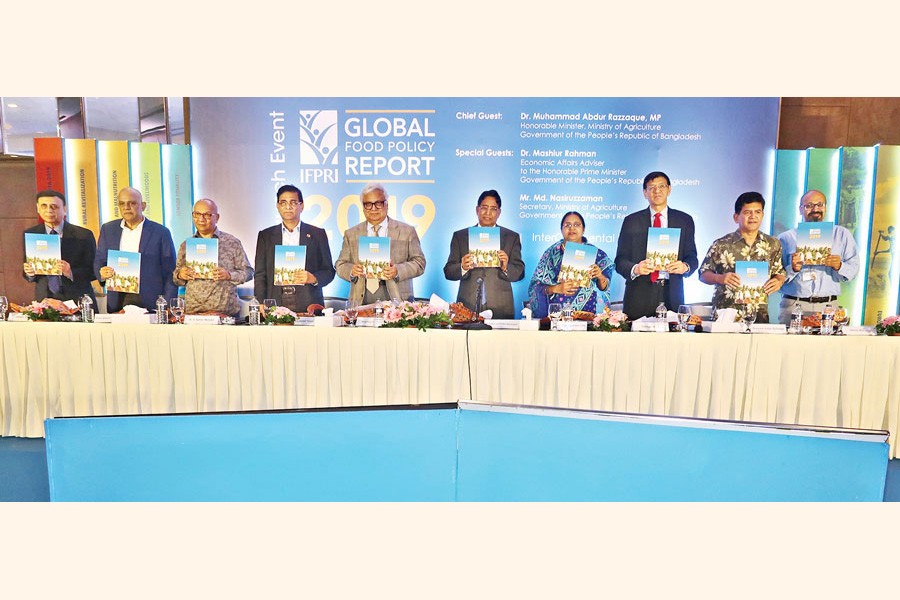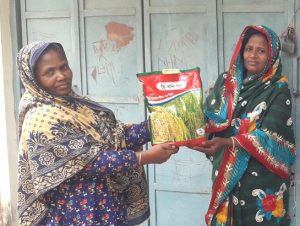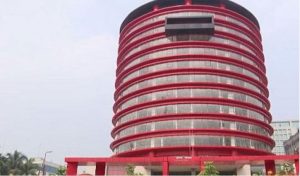Dhaka, April 18 – The International Food Policy Research Institute (IFPRI), an international agricultural research centre, on Thursday launched ‘global food policy report 2019’ that highlights Bangladesh as one of South Asia’s leaders in improving rural development indicators and food and nutrition security.
The report also pointed out that the need to close persistent rural-urban development gaps by continuing to design and implement innovative development programmes that address rural needs.
Agriculture minister Dr Muhammad Abdur Razzaque has unveiled the global food policy report 2019’ at a function at a city hotel. Economic adviser to the Prime Minister Dr Mashiur Rahman and additional secretary of agriculture ministry Mosammat Mazmawara Khanam attended as special guests.
Director General of IFPRI Shenggen Fan and country representative of IFPRI Dr Akter Ahmed delivered their speech on Bangladesh and global context on the issue.
Executive chairman of Power and Participation Research Centre (PPRC) Dr Hossain Zillur Rahman, former vice chancellor of Bangladesh agriculture university Dr M.A. Sattar Mandal, Director General of Bangladesh Institute of Development Studies (BIDS) Dr Khan Ahmed
Sayeed Murshid, Executive Director of BRAC Institute of Governance and Development (BIGD) Dr Imran Matin and member (general economics division) of planning ministry Dr Shamsul Alam spokes at the function.
The report emphasises that the rural areas could become premiere hubs of innovations in just under a decade.
It recommends revitalising rural areas with a focus on five building blocks: creating a farm and non-farm rural employment opportunities; achieving gender equality; addressing environmental challenges; improving access to energy, and investing in good governance.
The report notes that the great strides Bangladesh has made towards such a holistic revitalization of its rural areas, especially highlighting the success of the country’s investments in rural
infrastructures, social protection programmes and gender equality.
The report cities evidence that improving rural roads helped Bangladesh reduce extreme poverty by 3 to 6 per cent and boost secondary school enrolment among both boys and girls.
This year’s report also features chapters on how Europe’s experience can provide lessons for rural revitalization in developing countries; food policy trends from Africa, Asia, Latin America and other regions; updated data on food policy indicators and more.
The report is the latest in an annual analysis of developments in food policy around the developing world, based on the most recent available evidence.
After unveiling the global report, Agriculture minister Dr Muhammad Abdur Razzaque said that the government is working diligently to promote rural regions as viable habitats and economic areas where livelihood are secured, economic growth is enhanced and natural resources are used efficiently and sustainable.
“Our ministry is committed to implementing rigorous evolutions and updating our policies to integrate evidence-based research that may increase women’s decision-making power, well being and access and rights to resources as a way to strengthen the linkages,” he said.
“Revitalising rural areas can stimulate economic growth and begin to address the crises in developing countries and also tackle challenges holding back the achievement of the Sustainable Development Goals (SDGs) and climate goals by 2030,” Director General of IFPRI Shenggen Fan.
“With perseverance, 2019 can become the year when the will to eliminate hunger and malnutrition finally gathers momentum, forging a bright future for poor people around the world,” he said.
At the welcome speech, Dr Akter Ahmed said that Bangladesh’s sustained focus on rural development over several decades and across many different governments has made the country a global model for how to transform the lives of millions of poor rural men and women.
“The government has made important commitments to continue these improvements by investing in roads, healthcare, nutrition, and gender equality in rural areas,” he said.
The IFPRI was established in 1975 to identify and analyze alternative national and international strategies and policies for meeting the food needs of the developing world, with particular emphasis on low-income countries and on the poorer groups in those countries. – Staff Reporter





